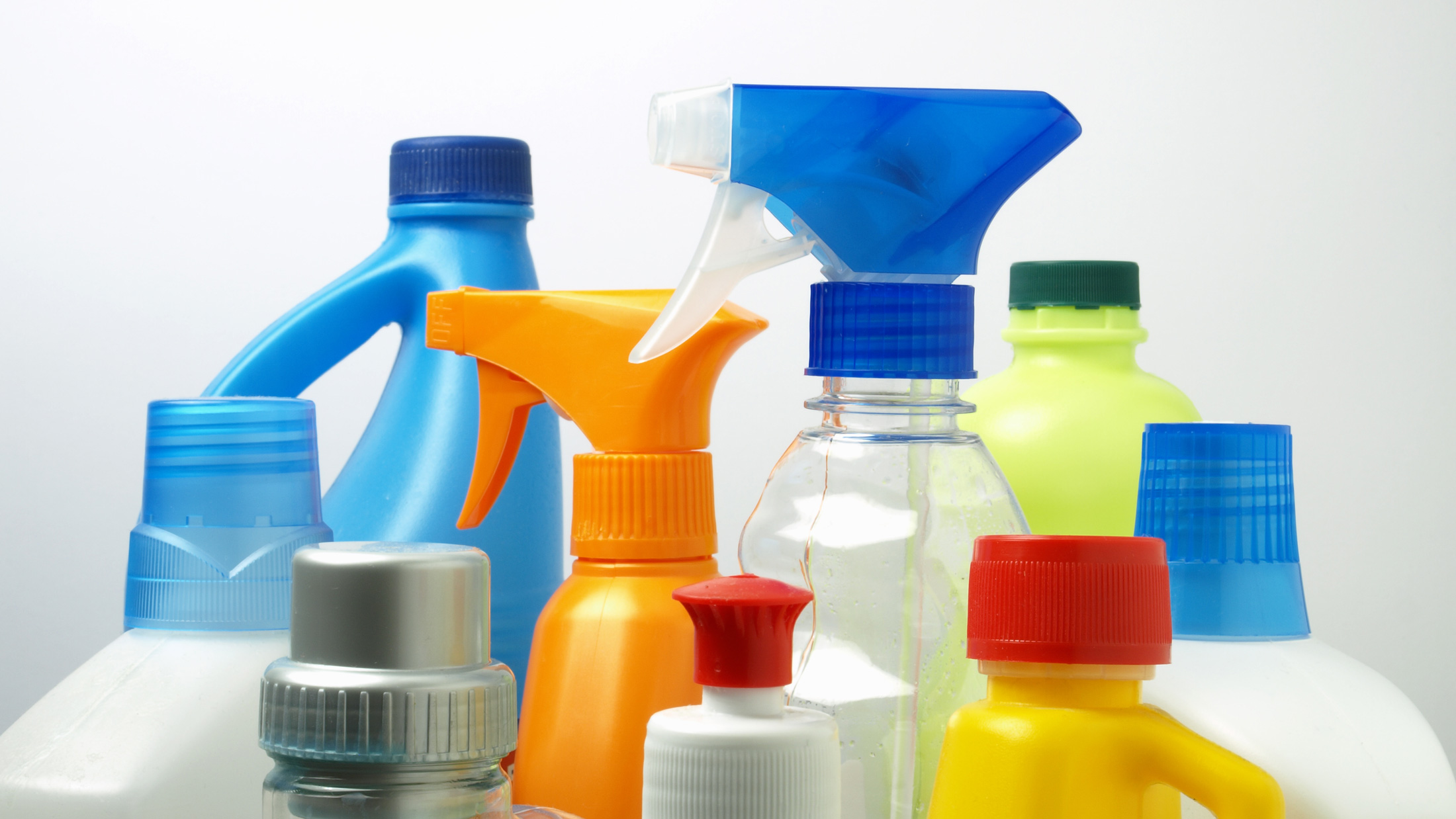Send your question to Umbra!
Q. Is it safe to recycle plastic jugs that previously held toxic substances? Would the residue from a bottle of automotive antifreeze or household cleaner transfer to next plastic product after recycling? I’ve thought about washing out the bottles before recycling, but I don’t really want to put this into the wastewater system either. Obviously, not using these products is the best way around this problem.
Jon
Lincoln, Neb.
A. Dearest Jon,
I’m so glad you asked. A well-meaning person who tosses the wrong item into a recycling bin can do more harm than good — especially when the item in question may contain toxic residue that can harm waste managers or contaminate other recyclables.
Nobody likes the idea of hazardous chemicals around the house, but many of us may end up harboring some anyway, whether it’s antifreeze, lawn pesticides, drain cleaners, or even nail polish. As you note, Jon, the best thing to do is avoid these products altogether, but more on that in a bit. For now, we’ve got a few jugs to deal with.
Your first order of business is to check the rules with your municipal waste manager. Lincoln, your hometown, just happens to provide a detailed guide for its citizens; browse the handbook to find out exactly how to handle everything from oven cleaner (empty and throw in the garbage) to general household cleaners (rinse and recycle). (If you don’t have the privilege of living in the Star City, your own recycling center and/or hazardous waste facility should provide instructions; if it’s not clear on their website, call and ask.)
If you’ve received the go-ahead to recycle a container, do make sure it’s empty. Do not achieve this goal by dumping the remaining chemicals on the ground (you’d be surprised how many people don’t know that), into a storm drain, or down the toilet if you have a septic system. Certain products might be able to go down the drain, accompanied by plenty of water and one at a time, but check with your friendly local managers before attempting. Hazardous-waste disposal enthusiasts should also check out this column for more on the subject.
A note about rinsing: If a product in a recyclable container is OK for a trip down the drain (say, a window cleaner), then go ahead and rinse it before recycling the bottle. But be careful with especially toxic products, such as pesticides. These bottles may be recyclable, but they often require a triple rinse and careful disposal of the rinse water.
Now that your worrisome jugs have met their fate — thrown away, recycled, or perhaps dropped off at the hazardous waste facility — I advise you to do all you can to avoid this problem in the future. Any product labeled DANGER, CAUTION, or WARNING should set off alarm bells when you’re shopping, as these items are highly toxic, flammable, and/or corrosive; I wouldn’t buy them unless absolutely necessary.
Fortunately, Jon, there are lots of safer substitutes out there. A plumbing snake declogs just as well as a nasty drain cleaner; vinegar and baking soda work wonders on pretty much anything that needs cleaning around the house; and compost is better for nourishing a garden than chemical fertilizers. The detailed disposal guide from Lincoln I cited above also suggests non- or less-toxic alternatives for all kinds of products (non-Lincolnites, it’s worth a read!), as does this site.
I’ll close with an old Irish blessing in keeping with last month’s St. Patrick’s Day holiday: May the road rise to meet you, may the wind be at your back, and may your contact with highly toxic, flammable, and corrosive chemicals be kept to an absolute minimum.
Prophylactically,
Umbra




